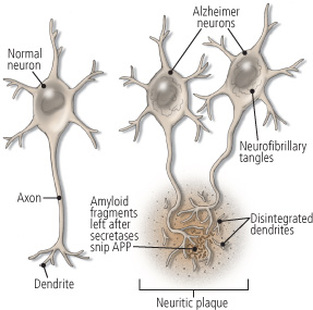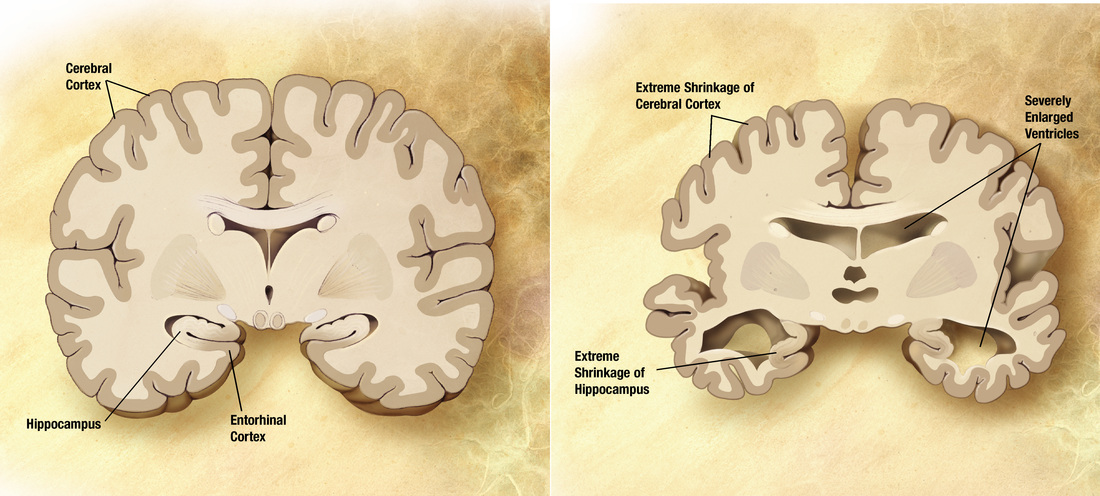Alzheimer's Disease
Alzheimer’s disease attacks the brain, changing the very organ that makes us ourselves. It takes away the capacity to do our basic functions and enjoy the pleasures of life. It makes older people dependent, taking from them their ability to love and empathise with other, their capapcity to plan and reason, their memories and sense of time, and the understanding of the sensory world of sight, sound and touch. As our society ages, the number of people affected also increases.
There is no cure for Alzheimer's, and it is not known what causes the disease.
There is no cure for Alzheimer's, and it is not known what causes the disease.
What is Alzheimer's
Our brain has many cells called neurons. These neurons exchange signals. They retain memories, process sensory inputs from our eyes, ears, nose etc. They also process information and lead to our 'understanding' of events and our actions. In Alzheimer's disease, clumps of protein build up between the cells, and tangles form within the cells. This leads to signals between the cells slowing down, eventually the cells die.
As more cells are affected, the brain can no longer function normally. Memory fades away, new memories are not formed, reasoning becomes flawed and the ability to deal with problems is lost. As the hippocampus is affected, new memories are not formed. As more cells die, more functions are lost.
There is no treatment that can cure Alzheimer's, and the reason for the disease is also not known. Alzheimer's mostly affects people over 65. However there are rare cases of Early Onset Dementia also. There are medications that delay the onset of the disease to some extent, and to help manage the symptoms. An understanding of the disease, its trajectory and using environmental and behavioral adaptations can help a great deal in the management of the disease. |
The Symptoms of Alzheimer'sMild Cognitive Impairment, or MCI, may be a first sign of this disease. Forgetfulness, irrational behavior, and inability to manage money are among the early signs of the disease. The symptoms vary from person to person, and some symptoms may appear earlier in one person, and later in another. The sequence of the symptoms appearing may also change. However there is always a decline in functions, leading to the person becoming bedridden, and finally dying, often due to aspiration pneumonia.
Some Common Symptoms Memory Loss: Misplacing things and not being able to retrace steps Inability to Manage Money: It becomes difficult to add bills and do minor financial transactions. Unable to keep track of time: When visiting, wanting to leave immediately, "because we have sat here for a long time. Not remembering meals: Forgetting to eat or forgetting that one has already eaten. Forgetting what was eaten. Inability to do minor tasks: Unable to keep the house neat, put away things in their place, make a simple meal, open boxes of food, throw away spoilt food. Forgetting places: Not recognising familiar places and roads. This leads to getting lost Forgetting names of people: In the later stages names of close family members, such as children, siblings or spouse also may be forgotten. Personal Hygiene: Forgetting to bathe, or reluctance to bathe, inability to go to the toilet or use the toilet properly. Not Socialising: Withdrawing from social activities. Communication Breakdown: Unable to communicate own needs or pain to others Mood changes: May become angry or sad without real reason Repetitive Behaviour: The same statement, story or question may be repeated again and again. Walking around, and doing the same thing again and again. |


